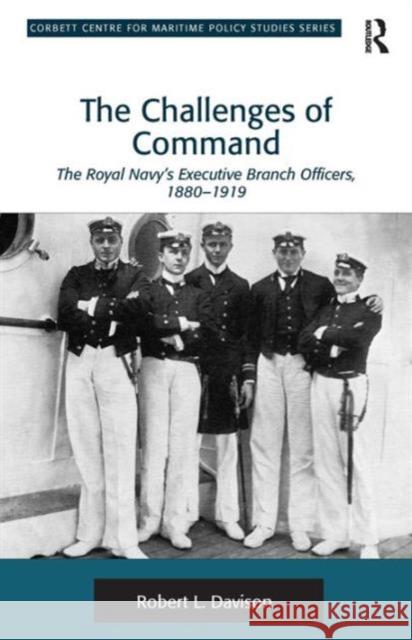The Challenges of Command: The Royal Navy's Executive Branch Officers, 1880-1919 » książka
The Challenges of Command: The Royal Navy's Executive Branch Officers, 1880-1919
ISBN-13: 9781409419679 / Angielski / Twarda / 2011 / 304 str.
The Challenges of Command: The Royal Navy's Executive Branch Officers, 1880-1919
ISBN-13: 9781409419679 / Angielski / Twarda / 2011 / 304 str.
(netto: 736,50 VAT: 5%)
Najniższa cena z 30 dni: 705,23
ok. 30 dni roboczych.
Darmowa dostawa!
In the period leading up to the First World War Britain's naval supremacy was challenged by an arms race with Germany, fuelled not only by military and geo-strategic rivalries, but an onrush of technological developments. As this book demonstrates, steam turbines, bigger guns, mechanical computing devices and ever increasing tonnage meant that the Royal Navy was forced to confront many long-cherished beliefs and sensitive social and political issues. By looking at key continuities over the period of 1880-1919 the study explores how the service and its officers attempted to deal with fundamental changes in professional requirements, and how cultural and social values underwent a transformation in the run up to the First World War. In particular the book looks at how the executive officer corps was presented with a revolution in naval affairs. As the Navy was transformed into an industrialized workplace, officers were challenged by an alteration in the 'culture of command' as arrangements carried over from the days of sail began to breakdown under the practical requirements of a steam and steel fleet. The book charts the ebb and flow of the debate and the various ideas put forward to deal with the structural challenges faced by the Royal Navy. The writings of reformers and commentators such as Fisher, Beresford, Corbett, Laughton and Mahan provide the background to the specific problems faced, and are analysed both in relation to the nature of the reforms implemented, and more crucially, the performance of the 'Senior Service' during the First World War.











